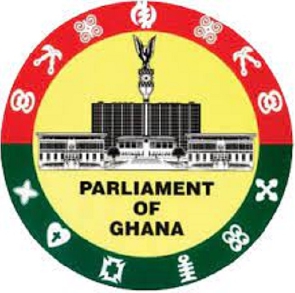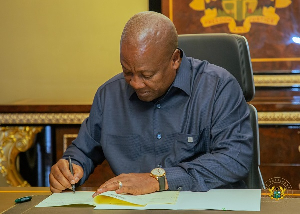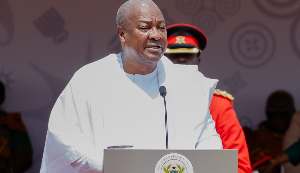The ongoing public hearing of the Public Accounts Committee (PAC) of Parliament in Sunyani is bringing to the fore certain pertinent issues that must not pass without comments.
One of such issues is that the PAC has cautioned public institutions to take note that they will be surcharged if they fail to produce within a 30-days’ period of grace after auditing all relevant documents in the form of receipts and invoices regarding procurements.
The PAC explains that henceforth after the 30 days, defaulting state entities will not have another opportunity to do so and that at this point, the officers in charge of those purchases will have to pay the surcharge even if there are no breaches in the procurement.
The PAC itself has admitted that some state entities are flouting the law because of laxity in its implementation.
We are saddened by what the PAC is now putting out for the information of the public.
This is because it is a Committee of Parliament deriving its existence from Article 103 of the 1992 Constitution of the Republic of Ghana and granted the powers, rights and privileges of a High Court in relation to its duties and authority.
It is clear that the PAC has not effectively applied its authority over the years.
Is there any need for the PAC to inform the public about what it is already mandated to do before it does it?
What does the PAC seek to achieve by this “public announcement”?
The admission by PAC to laxity in the implementation of the Procurement Law in itself is an admission of failure in discharging a public duty.
If after all its sittings and hearings, those who deserve sanctions are let off the hook or their sanctions left in limbo, the question is, should the State continue to expend resources on such hearings?
We are taking this position because we wonder why the PAC says Parliament is now going to meet with the Attorney General this year to find out the number of state agencies and departments prosecuted for procurement breaches.
The public need to be educated about why this should be so and why the PAC recommending such prosecutions cannot enquire about them from the Attorney-General’s office.
Probably, the PAC has limited powers because its work is limited to examining only reports presented by the Auditor-General (A-G) and can only make recommendations.
We think Parliament must look at the parameters of the work of PAC again and clothe it with more powers to bite and thus become a body that cannot be toyed with by any state organisation or official.
The fact that the PAC is always led by a member from the minority side is good for checks and balances, especially in our part of the world where partisanship gives public officials sympathetic to the ruling party some leeway to misbehave in their duties.
This is the more reason why we think the PAC has so far not performed to expectation and so must review its performance, while Parliament thinks of clothing it with the necessary powers to meet the exigencies of the moment.
Editorial News of Wednesday, 19 April 2023
Source: ghanaiantimes.com.gh
Editorial by Ghanaian Times: PAC must exert authority!
Entertainment












